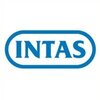Filter interviews by
Ipca Laboratories Hvac Supervisor Interview Questions, Process, and Tips
Ipca Laboratories Hvac Supervisor Interview Experiences
2 interviews found
I applied via Indeed and was interviewed in Mar 2024. There was 1 interview round.
(5 Questions)
- Q1. What is a HVAC system.
- Ans.
An HVAC system is a heating, ventilation, and air conditioning system that regulates temperature, humidity, and air quality in a building.
HVAC systems control temperature, humidity, and air quality in a building
They consist of components such as furnaces, air conditioners, ductwork, and thermostats
HVAC systems can be centralized or decentralized
Regular maintenance is important to ensure efficient operation
- Q2. What is a validation process.
- Ans.
Validation process is a methodical approach to ensuring that a system or process meets predefined requirements and specifications.
Validation process involves testing and verifying that a system or process performs as intended.
It includes documenting and analyzing results to ensure compliance with standards.
Validation process may involve validation protocols, test plans, and validation reports.
Examples of validation pro...
- Q3. What is a differentia lpressure .
- Ans.
Differential pressure is the difference in pressure between two points in a system.
Differential pressure is used to measure the pressure drop across a filter, coil, or other HVAC component.
It is important in HVAC systems to ensure proper airflow and efficiency.
Differential pressure is typically measured in inches of water column (in. w.c.) or pascals (Pa).
- Q4. Relative humidity and humidity mein difference
- Ans.
Relative humidity is the amount of water vapor present in air compared to the maximum amount it can hold at a specific temperature, while humidity is the general term for the amount of water vapor in the air.
Relative humidity is expressed as a percentage, while humidity is a general term for the amount of water vapor in the air.
Relative humidity changes with temperature, while humidity is a measure of the water vapor c...
- Q5. How to maintain RH end temperature define
- Ans.
Maintaining relative humidity and temperature levels in HVAC systems is crucial for optimal performance and comfort.
Regularly monitor and adjust the humidity and temperature levels using a humidistat and thermostat.
Ensure proper ventilation to prevent moisture buildup and maintain air quality.
Use dehumidifiers or humidifiers as needed to achieve the desired RH levels.
Inspect and maintain HVAC equipment regularly to ens...
I applied via Approached by Company and was interviewed in Mar 2024. There was 1 interview round.
(5 Questions)
- Q1. How to maintain in hvac
- Ans.
Regular maintenance of HVAC systems is essential for optimal performance and energy efficiency.
Change air filters regularly to ensure proper airflow and indoor air quality.
Inspect and clean evaporator and condenser coils to improve efficiency.
Check refrigerant levels and ensure there are no leaks.
Inspect and clean ductwork to prevent blockages and improve airflow.
Regularly schedule professional maintenance to identify ...
- Q2. What is a difference pressure.
- Ans.
Differential pressure is the difference in pressure between two points in a system.
Difference pressure, also known as differential pressure, is the variance in pressure between two points in a system.
It is commonly used in HVAC systems to measure the pressure drop across filters, coils, or ducts.
Differential pressure is crucial for ensuring proper airflow and system efficiency.
It is typically measured in units such as ...
- Q3. How to maintain Rh end temperature.
- Ans.
Maintaining Rh and temperature involves monitoring and adjusting humidity levels and air temperature in a controlled environment.
Regularly monitor humidity levels using a hygrometer
Adjust humidity levels by using a humidifier or dehumidifier as needed
Monitor and adjust air temperature using a thermostat
Ensure proper ventilation to prevent humidity buildup
Use HVAC systems to regulate both humidity and temperature
- Q4. How to maintain differential pressure
- Ans.
Maintaining differential pressure involves regular monitoring, adjusting airflow, and ensuring proper equipment functioning.
Regularly monitor differential pressure readings to ensure they are within the desired range
Adjust airflow by adjusting dampers, fan speeds, or air vents to maintain the correct pressure
Ensure proper functioning of equipment such as filters, fans, and ductwork to prevent pressure imbalances
Perform...
- Q5. What is the difference between Rh end relative humidity.
- Ans.
Relative humidity (RH) is the amount of water vapor present in air compared to the maximum amount that could be held at that temperature, while absolute humidity is the actual amount of water vapor present in the air.
Relative humidity is expressed as a percentage, while absolute humidity is expressed in grams of water vapor per cubic meter of air.
Relative humidity changes with temperature, while absolute humidity remai...
Interview Preparation Tips
Top trending discussions






Interview questions from similar companies

Assistant Manager Interview Questions & Answers
Zydus Lifesciencesposted on 10 Jul 2017
I appeared for an interview before Jul 2016.
Interview Questionnaire
2 Questions
- Q1. Related to experience
- Q2. System based test
Interview Preparation Tips
Experience: Multiple choice questions related to your experience
Tips: Link will send to personal mail
Duration: 30 minutes
Total Questions: 30
Round: Technical Interview
Experience: By department HOD
Round: Behavioural Interview
Experience: Psychometric test

I applied via Referral and was interviewed in Mar 2020. There was 1 interview round.
Interview Questionnaire
1 Question
- Q1. Your views on data integrity
- Ans.
Data integrity is crucial for accurate decision-making and maintaining trust in the organization.
Data integrity ensures that data is accurate, complete, and consistent.
It is important to have proper data management policies and procedures in place.
Regular data audits and checks should be conducted to ensure data integrity.
Examples of data integrity violations include data entry errors, system glitches, and unauthorized...
Interview Preparation Tips
Skills evaluated in this interview

I applied via Referral and was interviewed before Jun 2020. There were 3 interview rounds.
Interview Questionnaire
1 Question
- Q1. Questions related to your experience and what you written in your CV ..that can be situational based.
Interview Preparation Tips

I applied via Referral and was interviewed before Aug 2020. There was 1 interview round.
Interview Questionnaire
2 Questions
- Q1. How you will handle multiple tasks at a time
- Ans.
I prioritize tasks based on urgency and importance, delegate when necessary, and use time management techniques.
Prioritize tasks based on urgency and importance
Delegate tasks when necessary
Use time management techniques like creating a to-do list and setting deadlines
Break down complex tasks into smaller manageable steps
Utilize tools and technology to streamline processes
Communicate effectively with team members and st
- Q2. How you will resolve problems in Shop-floor
- Ans.
I will identify the root cause, involve the team, and implement a solution to prevent future occurrences.
Identify the problem and its root cause
Involve the team in brainstorming solutions
Implement a solution and monitor its effectiveness
Document the problem and solution for future reference
Interview Preparation Tips

I applied via Referral and was interviewed in Mar 2021. There were 4 interview rounds.
Interview Questionnaire
1 Question
- Q1. Purely technical related and practical applications
Interview Preparation Tips

I applied via Company Website and was interviewed in Nov 2019. There were 3 interview rounds.
Interview Questionnaire
9 Questions
- Q1. What was your job role in my previous company?
- Ans.
I was a Senior Sales Associate responsible for managing a team of sales representatives and achieving sales targets.
Managed a team of sales representatives
Set and achieved sales targets
Provided training and guidance to new team members
Analyzed sales data and implemented strategies to improve performance
- Q2. How do you find the reagent addition rate for exothermic reaction?
- Ans.
The reagent addition rate for exothermic reaction can be found by monitoring the temperature and adjusting the rate accordingly.
Start with a small addition rate and gradually increase it while monitoring the temperature.
Use a thermometer or temperature sensor to measure the temperature.
Adjust the rate based on the temperature changes to maintain a steady reaction rate.
Consider the reaction kinetics and the heat transfe...
- Q3. How does a PID temperature indicator controlled works and explains how ramping function works?
- Ans.
A PID temperature indicator controls temperature by adjusting heating/cooling based on feedback from sensors.
PID stands for Proportional-Integral-Derivative, which are the three control modes used to adjust temperature.
The indicator receives input from temperature sensors and compares it to the desired temperature setpoint.
Based on the difference between the two, the PID controller adjusts the heating/cooling output to...
- Q4. Have you ever designed a utility distibution systems for a given block,of you have then explain the concept behind it?
- Q5. What is MTSR,DSC,TSC and their diffences and when they are used?
- Ans.
MTSR, DSC, and TSC are metrics used in call centers to measure performance and efficiency.
MTSR stands for Mean Time to Service Request and measures the average time it takes for a customer's service request to be resolved.
DSC stands for Delayed Service Calls and measures the number of service calls that were not resolved within a certain timeframe.
TSC stands for Total Service Calls and measures the total number of serv...
- Q6. XRD of crystalline material vs amorphous material differnces and explain?
- Ans.
XRD is a technique used to determine the crystal structure of a material. Crystalline and amorphous materials show different patterns.
XRD stands for X-ray diffraction
Crystalline materials have a regular, repeating pattern of atoms while amorphous materials lack this pattern
XRD patterns of crystalline materials show sharp peaks while amorphous materials show broad peaks
XRD can be used to identify unknown crystalline mat...
- Q7. What is the degree of freedom of water at triple point?
- Ans.
The degree of freedom of water at triple point is 0.
Triple point is the temperature and pressure at which solid, liquid, and gas phases of a substance coexist in thermodynamic equilibrium.
At triple point, the degree of freedom of a substance is zero because all three phases coexist in equilibrium.
Water has a triple point at 273.16 K (0.01 °C) and a pressure of 611.73 Pa.
At triple point, water can exist as ice, liquid w
- Q8. What is risk?
- Ans.
Risk is the possibility of loss or harm occurring due to uncertain events or circumstances.
Risk involves uncertainty and the potential for negative consequences.
It can be managed through risk assessment, mitigation, and transfer.
Examples of risks include financial risks, health risks, and environmental risks.
Risk can also present opportunities for growth and innovation.
- Q9. How would you calculate the power required for a pump?
- Ans.
The power required for a pump can be calculated using the formula: Power = (Flow rate x Head) / Efficiency
Calculate the flow rate of the pump
Determine the head or pressure required
Consider the efficiency of the pump
Use the formula: Power = (Flow rate x Head) / Efficiency
Example: If the flow rate is 1000 liters per minute, the head is 50 meters, and the efficiency is 80%, the power required would be (1000 x 50) / 0.8 =
Interview Preparation Tips
One should be very clear in what they are saying.
Skills evaluated in this interview

I applied via Walk-in and was interviewed before Jan 2021. There were 4 interview rounds.
Interview Questionnaire
3 Questions
- Q1. 1.How you can contribute to the organization?
- Q2. What are your key strengths?
- Q3. Where do you see yourself after 5 years?
Interview Preparation Tips

Assistant Manager Interview Questions & Answers
Intas Pharmaceuticalsposted on 4 Oct 2022

(1 Question)
- Q1. Previous Experience in your current organisation
(1 Question)
- Q1. Salary expectation, Salary negotiations
Interview Preparation Tips
Ipca Laboratories Interview FAQs
Tell us how to improve this page.
Ipca Laboratories Interviews By Designations
- Ipca Laboratories Senior Officer Interview Questions
- Ipca Laboratories Junior Research Associate Interview Questions
- Ipca Laboratories Junior Officer Interview Questions
- Ipca Laboratories Production Officer Interview Questions
- Ipca Laboratories Senior Production Officer Interview Questions
- Ipca Laboratories Senior Research Associate Interview Questions
- Ipca Laboratories Officer Interview Questions
- Ipca Laboratories Medical Representative Interview Questions
- Show more
Interview Questions for Popular Designations
- Hvac Technician Interview Questions
- Electrical Supervisor Interview Questions
- Mechanical Supervisor Interview Questions
- Electrical Engineer Interview Questions
- Production Supervisor Interview Questions
- Instrumentation Supervisor Interview Questions
- QA QC Engineer Interview Questions
- Hvac Foreman Interview Questions
- Show more
Ipca Laboratories Hvac Supervisor Interview Process
based on 2 interviews
Interview experience
Interview Questions from Similar Companies
Fast track your campus placements
|
Junior Officer
613
salaries
| ₹1.5 L/yr - ₹5 L/yr |
|
Officer
532
salaries
| ₹1.7 L/yr - ₹6.2 L/yr |
|
Senior Officer
461
salaries
| ₹2.7 L/yr - ₹8 L/yr |
|
Research Associate
233
salaries
| ₹2.2 L/yr - ₹7 L/yr |
|
Executive
228
salaries
| ₹3.8 L/yr - ₹9.2 L/yr |

Cipla

Dr. Reddy's

Lupin

Zydus Lifesciences
- Home >
- Interviews >
- Ipca Laboratories Interview Questions >
- Ipca Laboratories Hvac Supervisor Interview Questions













